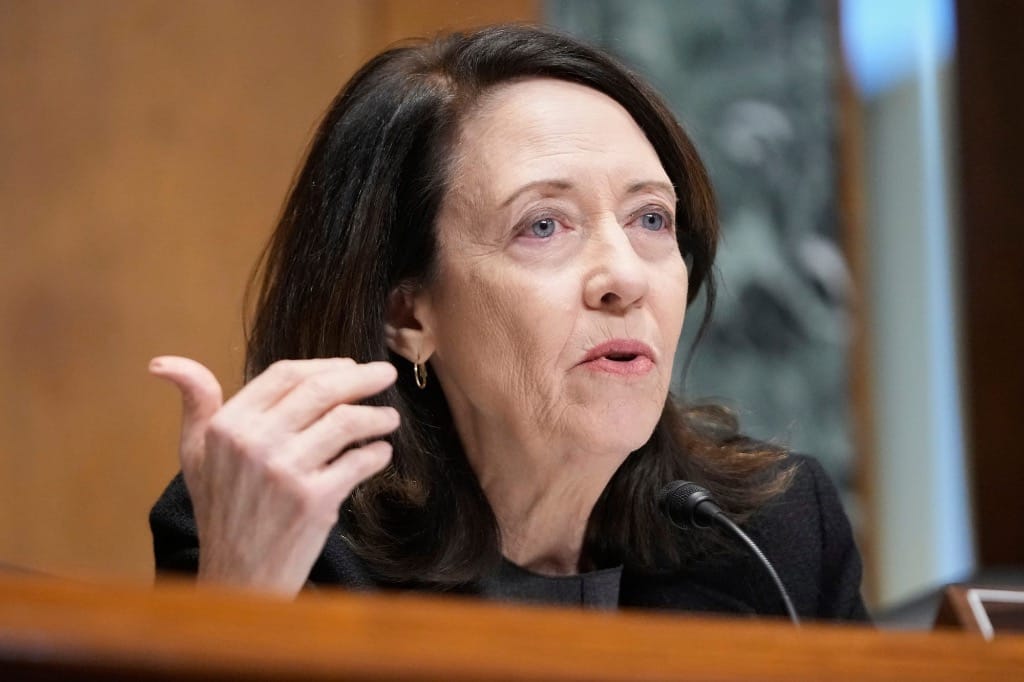Senators From Both Parties Press Roth on BEAD Changes
The nominee to head the NTIA said she would consult with stakeholders if a per-location spending cap came up.
Jake Neenan

WASHINGTON, April 15, 2025 – In written questions, senators from both parties pressed Arielle Roth, President Donald Trump’s pick to run the National Telecommunications and Information Administration, on maintaining state control of the agency’s largest broadband grant program.
The questions came from five Democrats and three Republicans who indicated they were also concerned about their states’ timelines being upended. They were similar to exchanges during Roth’s confirmation hearing in which she was largely noncommittal.
The Senate Commerce Committee voted April 9 to advance Roth’s nomination to head the NTIA, which will now go before the full Senate. Every Democrat on the committee except John Fetterman, D-Pa., opposed her nomination. The panel has 13 Democrats and 15 Republicans.
The $42.45 billion Broadband Equity, Access, and Deployment program is currently under review by the Commerce Department, which houses NTIA, in an effort by Commerce Secretary Howard Lutnick to make it more technologically neutral. The Trump administration and Roth have been critical of the program’s preference for fiber, which is capable of faster speeds but is viewed by some as more expensive.
More than 40 states have started the process of taking grant applications under the current rules. Three had spending plans greenlit under the Biden administration, but those plans have been under review by NTIA’s grants manager since Trump took office. West Virginia received a 90-day deadline extension in order to rework its final list of projects before submitting for federal approval.
“If Secretary Lutnick’s ongoing ‘review’ of the BEAD program results in allocated funding being clawed back, will you oppose such efforts, if confirmed?” Sen. Maria Cantwell, D-Wash., the committee’s ranking member, asked.
Roth’s full reply: “Connecting every American to broadband is my top priority, and I support using every dollar allocated in the BEAD program to do just that. If confirmed, I look forward to working with Secretary Lutnick and NTIA staff to expedite the BEAD program and get allocated funding to the states, consistent with the law.”
Cantwell and Sen. Jacky Rosen, D-Nev., asked whether Roth supported the NTIA setting a per-location cap on state BEAD spending. The move has been flagged by analysts as the most direct way for the agency to force states to spend less money on fiber and more on fixed wireless or satellite, and is something the program’s director under the Biden administration said he expected to see under Trump.
“If confirmed and the issue of a per-location cap were to come up, I would consult with legal counsel, NTIA’s career staff, state broadband offices, and industry stakeholders, as appropriate,” Roth answered. “Moreover, a per-location cap, should it come up, would need to account for consideration of high-cost areas, including high-cost Tribal areas.”
Cantwell also expressed concern that Elon Musk, the owner of market-dominating satellite ISP Starlink and close adviser to Trump, would benefit improperly from BEAD funds being allocated toward the technology.
Roth said she had never met or interacted with Musk, and agreed it would be “a bad outcome” if, as Cantwell put it, rural areas got worse connectivity in service of making Musk richer. Asked if she would commit not to promote or endorse businesses owned by Musk or other Trump administration officials, Roth responded, “Yes.”
On the Republican side, Sens. Deb Fischer, R-Neb., Dan Sullivan, R-Alaska, and Shelley Moore Capito, R-W.V., said they were also concerned about how changes could affect their states.
“While I am all for tech neutrality and easing lots of burdensome requirements like the labor mandates – if a state wants to use fiber they should be able to,” Capito wrote.
Roth responded that she agreed “states should have flexibility to tailor solutions to their individual circumstances, consistent with the law,” and said she supported “an all-of-the-above solution, including fiber as well as alternative technologies where appropriate.”
Capito also asked if July – her state's deadline to submit a final spending plan is now late July – would be a reasonable deadline for Commerce’s review of the program to be completed, and Roth said she couldn’t commit to a specific timeline.









Member discussion